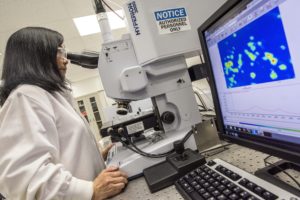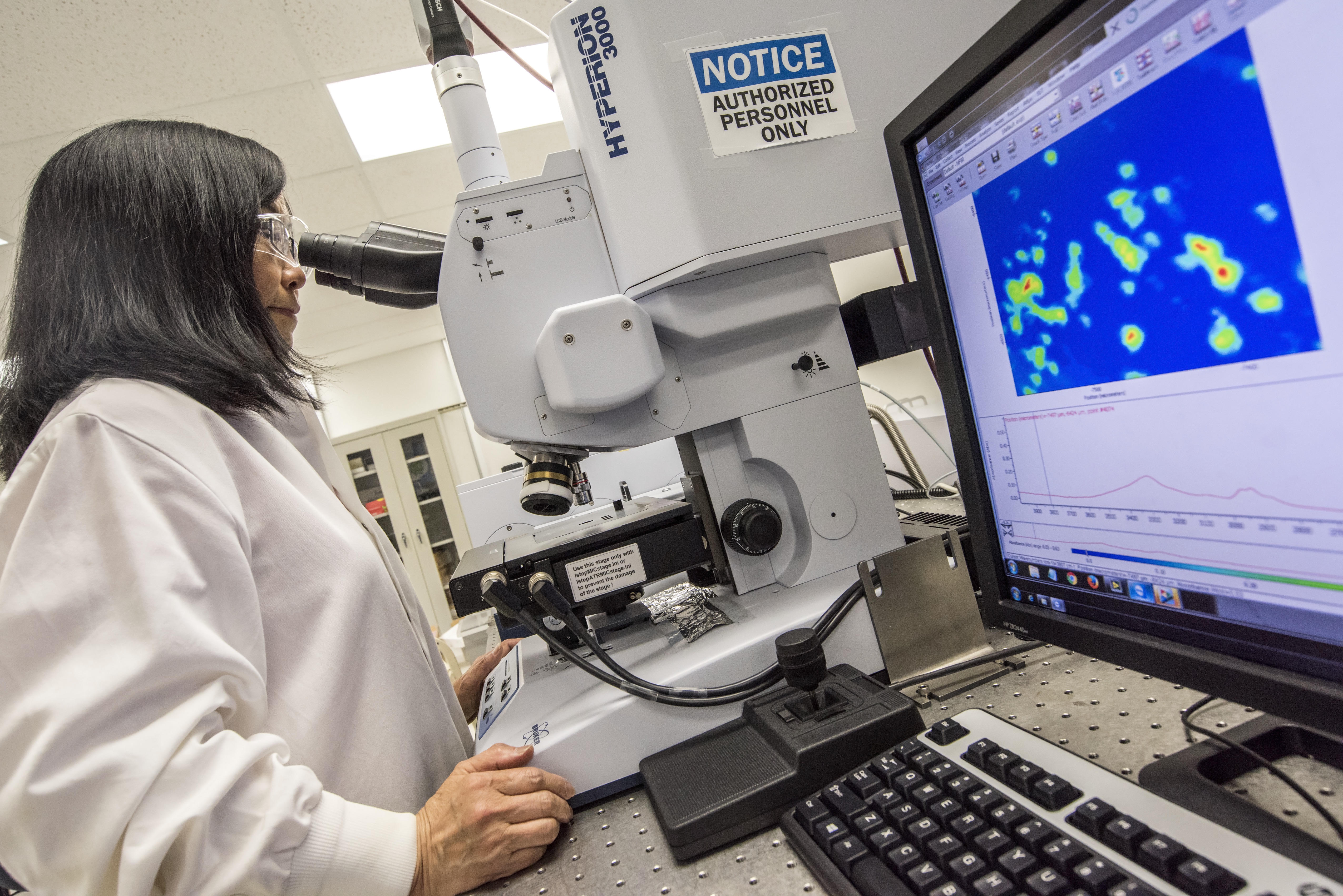 Human skin is teeming with microbial life, and not just bacteria. An international collaboration among researchers at Berkeley Lab, led by Hoi-Ying Holman, the Medical University of Graz in Austria and at the University of Regensburg in Germany, found representatives of the domain archea–which inhabit some of the most extreme environments on the planet–coexisting alongside more run-of-the-mill microbes. What’s more, according to the paper published in Scientific Reports, the relative abundance of archea varies with a person’s age. Holman, a senior author on the report, is head of Chemical Ecology in the Earth & Environmental Sciences Area and has a secondary affiliation in Biosciences in the Molecular Biophysics and Integrated Bioimaging (MBIB) division. Using the Advanced Light Source (ALS), her group developed a rapid and label-free method to screen cells and tell if they’re bacteria or archaea. Read more from the Berkeley Lab News Center.
Human skin is teeming with microbial life, and not just bacteria. An international collaboration among researchers at Berkeley Lab, led by Hoi-Ying Holman, the Medical University of Graz in Austria and at the University of Regensburg in Germany, found representatives of the domain archea–which inhabit some of the most extreme environments on the planet–coexisting alongside more run-of-the-mill microbes. What’s more, according to the paper published in Scientific Reports, the relative abundance of archea varies with a person’s age. Holman, a senior author on the report, is head of Chemical Ecology in the Earth & Environmental Sciences Area and has a secondary affiliation in Biosciences in the Molecular Biophysics and Integrated Bioimaging (MBIB) division. Using the Advanced Light Source (ALS), her group developed a rapid and label-free method to screen cells and tell if they’re bacteria or archaea. Read more from the Berkeley Lab News Center.




